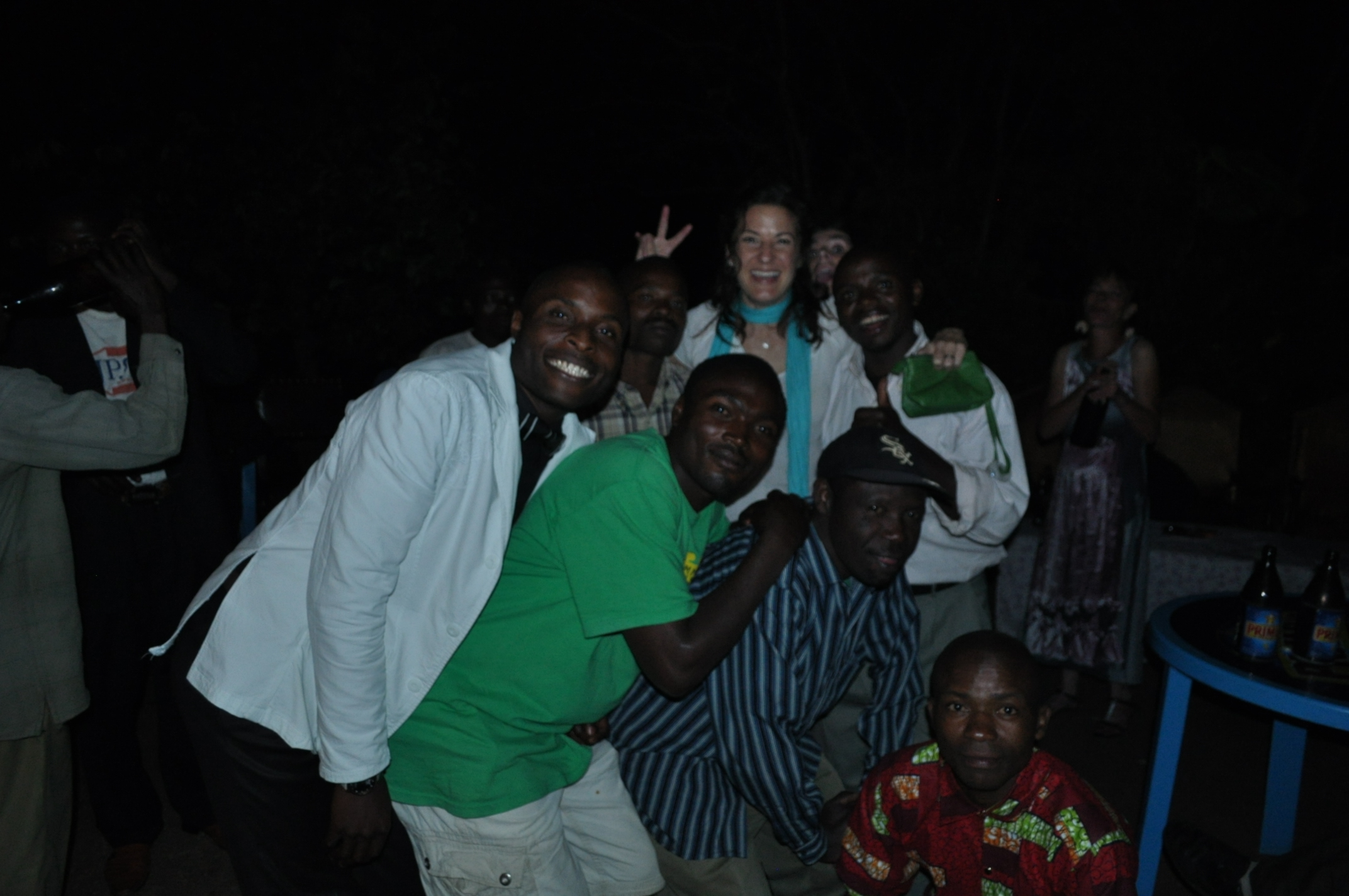Soooo, I’m moving again.
I can’t help but think there was a colossal mix-up during my incarnation, and I was actually supposed to be a turtle.

Why? Because this will be move #13 in 3 years and move #4 in the past nine months, which includes a 5-month stretch living out of a suitcase…in 3 different countries.
I fear I might have cursed myself with the whole gypsy association. If this is the case, I would like to clarify: what I meant was “a free-spirited, love to travel, always up for adventure” gypsy…not the perpetually displaced kind.
If it sounds like I’m complaining, well, I am. Because let’s be honest, moving is f*cking terrible. One of my favorite bloggers, mydangblog, summed it up perfectly:
Moving is bullsh*t. Everyone knows that. In fact, I can’t understand why people don’t just live in the same place until they die because moving is so horrible.
And just to make sure these moves were sufficiently terrible, I did most of them with virtually no help- one, on the hottest day of the year, another, in the pouring rain, and the most recent, minutes before the worst blizzard this year ensued.
One move, in particular, I believe #7, stands out as one of the more challenging. To add insult to injury (literally), I had conveniently torn a tendon in my ankle two weeks before. So, I hired Karl to help…Karl, with a “K”.
Karl was a friend of some random guy I met at a coffee shop. I was so grateful, I never asked if “said friend” was a guy or girl, which proved to be a good thing.
I’m the first one to declare that our gender is just as capable as men at performing most physically arduous tasks. But realistically, the average woman isn’t primed for hauling heavy furniture and boxes upstairs. And since women aren’t frequently recruited to help friends move, they aren’t necessarily good at it. And I’m here to tell you, there is an art to moving.
All to say, I was admittedly disappointed when *they showed up…and a bit worried. My concerns proved to be valid. In addition to having to haul the heaviest boxes myself and explain how to maneuver furniture around corners, there was an additional element that proved to complicate things further.
In an attempt to make the task at hand more bearable and boost morale, I tried to lighten things up a bit- crack a joke here and there, throw out the occasional affirmation, for example, “We’ve got this, girl.”
But I was getting the vibe that my cheerleading wasn’t working. This was confirmed about 30 minutes in when they turned around, mildly annoyed, and said something to the effect of…
Helper: Could you please stop calling me that?
Me: Wait, what? Oh god, what did I say?
Helper: I’m actually transitioning and no longer identify as a girl, so if you wouldn’t mind…”
Me: Oh my gosh, I’m so sorry, I didn’t…I mean, I couldn’t…I was just…
Awkward pause.
“Right, got it.”
I darted downstairs and slid into the bathroom. Seriously Brooke, could you have made that any more awkward? Just call her by her name…or do I say his name? Oh shit, I forgot what her name is. I mean his! Oh my god, I seriously can’t…
Within an hour, they announced they needed to go. I panicked. We had barely made a dent, and my ankle was twice its normal size at that point. I caved and called “E”.
Me: Um, so I hate to ask you to do this, but I’m kinda desperate. This girl, I mean, this friend of an acquaintance, was helping me, but she, shit, I mean, this person has an appointment that she. Oh my god, I seriously can’t…
E: (Laughing) Uh, you okay?
Me: Tears.
E. Oh, alright. I’ll be over in a bit.
I grabbed my checkbook.
Me: So what is your name again? I mean, I know what your name is, but how do you spell it, exactly?
Helper: Karl Adams, Karl with a K. But for now, just make it out to Carly Adams, Carly, with a C.
Me: Right, got it.
* This is not intended to disrespect anyone in transition AT ALL. After the fact, I did some research and the consensus seems to be that “they” is best when you are writing if you aren’t sure. In retrospect, I should have just asked, which upon further inquiry, seems to be what most everyone prefers. All to say, I’m so very sorry, Karl, wherever you are!
In contrast, my next move, or maybe it was the move after, had serious potential for a better outcome. I happened to meet a kind, extremely fit, very attractive Australian who offered to help- a seemingly fortuitous encounter that turned into a love story of sorts, just minus the happy ending.
So I opted to go solo my last move. A sore back and a few bruises seemed better than offending the shit out of someone or a broken heart.
I made it a little easier on myself this time, leaving all things too cumbersome in the ally for some stable homeowner or renter to enjoy. I have replaced them with versions I can manage by myself if necessary. And yes, this includes a desk and a dresser. (You can’t even wrap your head around what I’ve managed to haul up and down three flights of stairs.)
—
Moving usually makes the list as one of life’s most stressful events. Divorce is usually high up there too (check), death of a loved one (partial check, with a terrible twist), financial upheaval (check). Imprisonment is high on the list too, but to date, I have managed to avoid any run-ins with the law, for the most part, anyway.
But, I shall refrain from complaining further. I do still have my limbs, after all, and a roof over my head…most of the time. I mean “I have a roof over my head most of the time.” My limbs are hopefully here for the long haul…because I kinda need them to haul shit around, it seems.

I try to keep reminding myself of this because I know it to be true; I’ve been on both sides.
When I was packing for the Congo, one of the essentials I was told to bring was a watch. Electricity was going to be a luxury, so if I couldn’t charge my phone, I wouldn’t know what time it was.
Why would one need to know what time it is in a remote village in the Congo? Well, there were chimps to be fed and an imposed curfew we were supposed to abide by for safety purposes. I admittedly regularly missed the latter, but I truly didn’t know what time it was…because I had misplaced my watch the first week I was there.
I wasn’t too upset about it. I’d only ever used it to time my track workouts, and I had my travel alarm, so the chimps wouldn’t go hungry.
So a month or so later, I was running with Rafael, one of the staff I had become friends with, and I noticed he was wearing my watch. I don’t think for a second that he stole it. I think I took it off when I was washing the chimps’ veggies and left it on the counter. That meant it was up for grabs, plain and simple.
As we were running, I realized the watch no longer worked. It was just a dirty, pastel green band with a blank screen. But Rafael was now one of the only people in the village who had a watch. It didn’t matter if it worked or not; he had a watch.
He did not, however, have running water or electricity in his home. And his home was what most would consider a shack, probably just one open room with dirt floors and a tin roof.
My point is, for most of us in the developed world, Rafael’s life seems tragic. But he was always smiling with a kind disposition and fun sense of humor. He had a job, which was extremely rare in the village. He had food to eat, albeit mostly beans and cassava. He had friends and a healthy family, all of his limbs, and a roof over his head. Most of these were a luxury there.
I know, a seemingly random tangent, but I think of these things when shit seems like it can’t get any worse. A) I make it a point to never say that because I’ve learned it definitely can, and B) I can focus on the shit that’s wrong or the shit that’s not. Unfortunately, the prior wins out more than I’d like.
—
So, here’s to lucky number #13 and the hope that a kind soul will swoop in and help a girl out. I promise I will commit your name to memory and keep the cheerleading to a minimum.
And if you are in fact, a kind, fit, attractive male, that’s great. Just no broken hearts, please. Cause, although I can’t give you the exact length of time (I misplaced my watch, you see), I know a good chunk of it has been wasted trying to move on…which I think we’ve established, I’d rather stop doing.
Besides, I’m simply not wired to be a turtle. I’m too impatient and tend to operate in 5th gear most of the time. And even if this is someone else’s paradise, it’s not mine, so I’d like to get things moving (or even just help moving), and time is of the essence.
































































 As often happens in these scenarios, I became fast friends with a woman who visited my supervisor, Carmen, two weeks ago. Sylvie is the Director of Conservation for Kahuzi-Biega, the national park/UNESCO World Heritage Site where our chimpanzee sanctuary is located. We instantly clicked and she invited me to visit her in Bukavu, the closest city to Lwiro.
As often happens in these scenarios, I became fast friends with a woman who visited my supervisor, Carmen, two weeks ago. Sylvie is the Director of Conservation for Kahuzi-Biega, the national park/UNESCO World Heritage Site where our chimpanzee sanctuary is located. We instantly clicked and she invited me to visit her in Bukavu, the closest city to Lwiro. I was already sweating in the afternoon heat, clinging to Obe’s thick down jacket, which he wears faithfully regardless of the temperature.
I was already sweating in the afternoon heat, clinging to Obe’s thick down jacket, which he wears faithfully regardless of the temperature.

 The spirited beat of Congolese music spilled out of the radio, providing the perfect soundtrack for the colorful, frenetic performance I was now a part of.
The spirited beat of Congolese music spilled out of the radio, providing the perfect soundtrack for the colorful, frenetic performance I was now a part of.